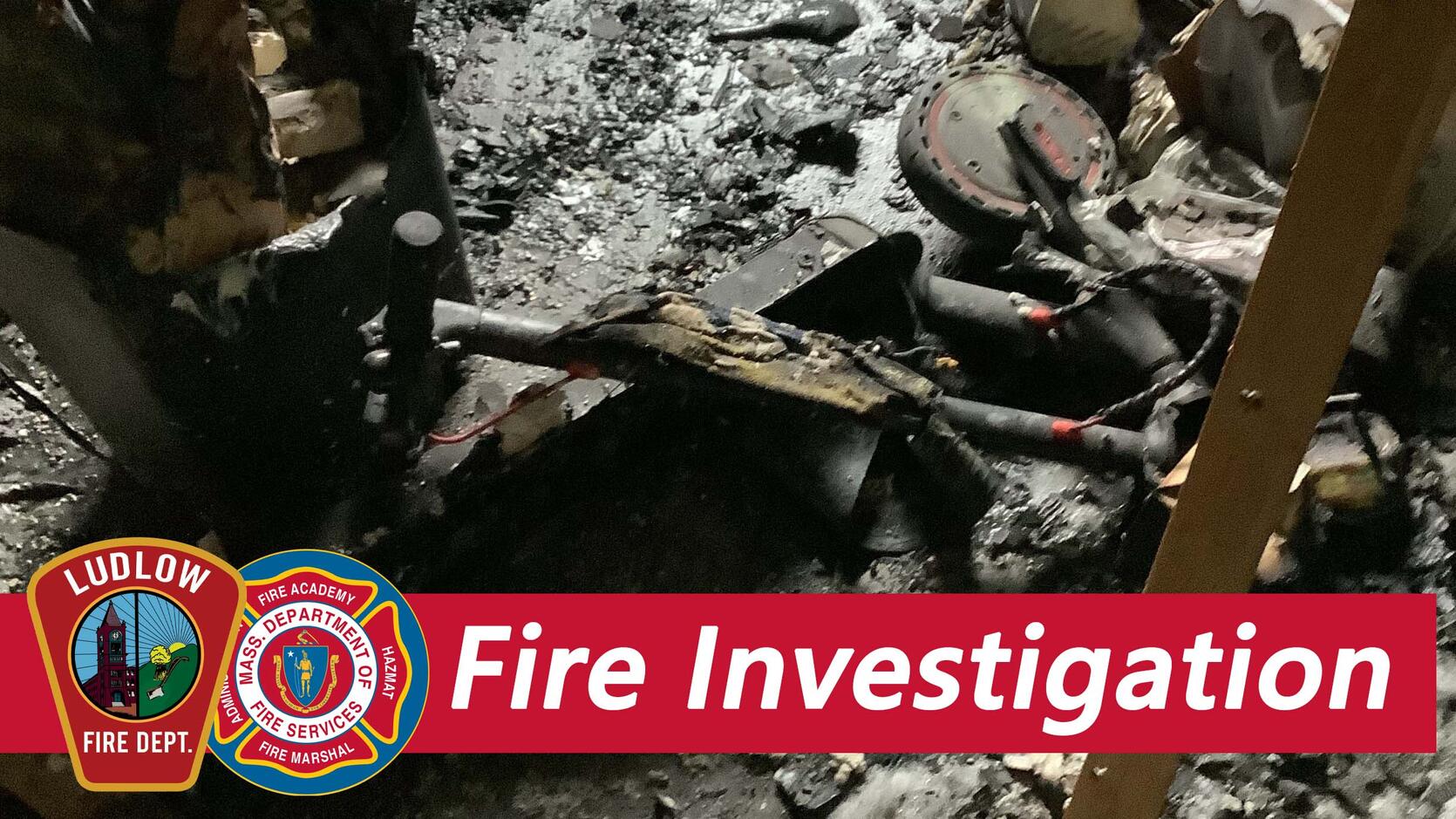- Department of Fire Services
Media Contact
Jake Wark, Public Information Officer

LUDLOW — The lithium-ion battery from an electric scooter exploded in a Ludlow home yesterday, causing a two-alarm fire and significant property damage, said Ludlow Fire Chief Ryan Pease and State Fire Marshal Jon Davine.
“Lithium-ion batteries power many of the devices we use every day at home, work, and school,” said Chief Pease. “It’s vitally important that we purchase, charge, and recycle these batteries safely to prevent incidents like this one. Fortunately, no one was injured in yesterday’s fire but the danger was very real.”
Ludlow Central Dispatch received a 9-1-1 call at 3:53 yesterday afternoon reporting a fire at 56 Haviland Street. The Ludlow Fire Department responded to find heavy fire showing from several windows of the single-story, wood-framed home. A second alarm was struck, bringing mutual aid and off-duty firefighters to the scene. Firefighters were able to gain control of the fire within 15 minutes. All occupants were able to escape safely but have been displaced due to extensive fire and smoke damage.
The origin and cause of the fire were investigated by the Ludlow Fire Department and State Police fire investigators assigned to the State Fire Marshal’s office. Based on an examination of the scene, witness interviews, and other evidence, they determined that the fire was accidental and started when the battery pack from an electric scooter exploded in the kitchen. The battery had reportedly been failing to charge, and an aftermarket charger purchased online had been put into use.
“Always use the manufacturer’s recommended equipment when charging lithium-ion batteries,” said State Fire Marshal Davine. “Aftermarket accessories may not be compatible with the battery and have been associated with a rising number of fires. If the battery won’t take a charge, dispose of it safely. Take it to a household hazardous waste drop-off in your community or a battery recycling location.”
Lithium-ion battery safety is the theme of this year’s Fire Protection Week observances. From October 5-11, fire and life safety professionals will promote these important tips:
- Buy only listed products. When buying a product that uses a lithium-ion battery look for a safety certification mark from an independent lab such as UL or Intertek/ETL. This means it meets important safety standards.
- Charge devices safely. Always use the cords that came with the product to charge. Follow the instructions from the manufacturer. Buy new chargers from the manufacturer or one that the manufacturer has approved. Charge your device on a hard surface. Don’t overcharge your device. Unplug it or remove the battery when it’s fully charged.
- Recycle batteries responsibly. Don’t throw lithium-ion batteries in the trash or regular recycling bins because they could start a fire. Recycle your device or battery at a safe battery recycling location. Visit www.call2recycle.org for a recycling spot near you.
###
